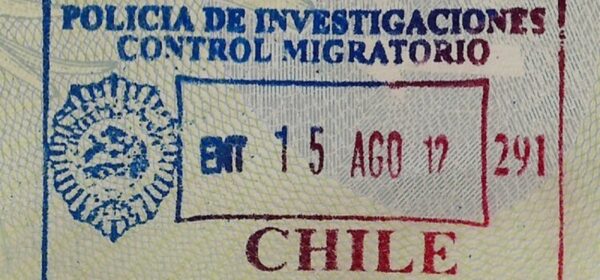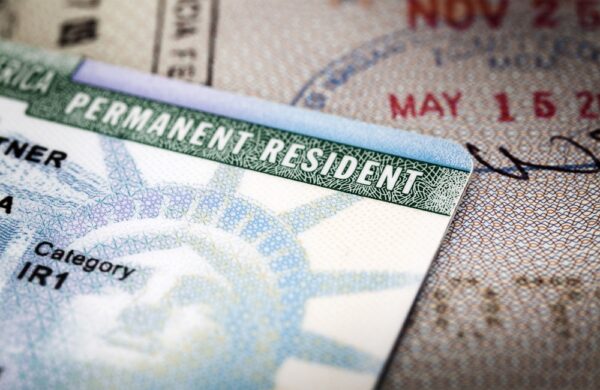Dreaming of a life in Israel? Gaining permanent residency allows you to enjoy the stunning history, the marvelous culture, and the active economy of the country. Israel, being on the global map as one of the centers of creativity and modern culture, offers various ways of lifestyle, from traditional to contemporary. Regardless of being fascinated by the fast-paced urban environment, the stunning nature, or the different people, permanent residency gives you all the options. This status gives you access to world-class healthcare as well as a safe and highly economically structured country providing great job opportunities. Explore the process of making Israel your new home and establish your future in the beautiful country.
Permanent Residency in Israel
A permanent resident visa holder can live in Israel for the remainder of their life, provided their residency has not expired. Foreign nationals who choose to keep their foreign citizenship instead of renouncing it in order to obtain Israeli citizenship are usually awarded permanent residency in Israel. This is because Israel doesn't accept dual citizenship except in some cases.

These people maintain their connections to their homelands while taking advantage of Israel's benefits and opportunities by obtaining Israeli permanent status. When someone wants to make Aliyah, this can happen. New immigrants known as Olim may wish to maintain their citizenship in their home country; in this instance, they are granted permanent residency in Israel.
The gradual process to obtain permanent status for a well-known couple is significantly longer, taking approximately 7 years. However, a gradual process of a foreign spouse lawfully married to an Israeli resident is 4.5-5 years, and the civil status provided is Israeli citizenship.
Who is Eligible for Israel Permanent Residency?
The following categories of foreign citizens are eligible to apply for permanent residency:
1. Foreign Workers
The B1 visa category is valid for one year and allows foreign workers to reside in Israel. However, it is impossible to obtain without the assistance of the employer. Therefore, the employer must request a work permit from the Ministry of the Interior for a foreign worker.
2. Spouses of Israel Permanent Residents or Citizens
There are multiple steps involved in this process. First, a B1 or A5 visa type is granted. After that, the residence permit will be renewed until the individual is eligible to apply for a permanent one. Additionally, the couple must be interviewed and show that their marriage is free from any greedy intentions and that their bond is true. This can be somewhat challenging at times because the check is done very carefully; the interviewer may even ask to look at the couple's private communications to confirm the sincerity of their intentions.
3. Minor Children of an Israel Permanent Resident
A child who is born into a family of state permanent residents is likewise eligible for a permanent residency visa.
4. Elderly Parents of Israel Citizens
After being granted permanent status, adult citizens can arrange for their elderly parents to relocate. Yes, but only under specific circumstances. Therefore, both the mother and the father must be at least 65 and 67 years old, respectively.
Ways You Can Get Permanent Residency in Israel
Here are the different ways you can obtain permanent residency as a foreign national:
For Jews
Most foreigners in Israel have moved here for religious reasons. According to Israel's Law of Return, all Jews are free to relocate there. The “Oleh Visa,” an immigrant visa issued under the Law of Return, will grant you an immigration document (Teudat Oleh) and an ID card (Teudat Zehut), granting you full residency rights and access to all relevant social benefits in Israel. As an Oleh, you will be automatically granted Israeli citizenship 90 days following your entry into the nation unless you opt-out, in which case you will retain permanent resident status.
For Non-Jews Married to an Israeli National
A non-Israeli national married to an Israeli citizen may be qualified for a temporary residence permit in the country after six months on average and citizenship after four years, following a series of examinations and interviews to gauge the sincerity and depth of the couple's commitment.
The procedure is the same but takes longer for unmarried couples of the same or different sex: partners of Israeli citizens must wait three years to be awarded temporary residency status and six years to be granted permanent residency status. They are not eligible to claim Israeli citizenship even during this time.
Other Non-Jews
Non-Jews without familial ties in Israel can stay in the country for more than three months if they get an Israeli employer and secure an Israeli work visa. This is unquestionably the easiest way to enter the nation. Later on, non-Jews who can provide valid grounds for their desire to remain in Israel may seek permanent resident status.
It is still quite uncommon for non-Jews to be granted permanent residency in Israel; permits are given on an individual basis following a careful examination of the applicant's circumstances, background, and objective by the Ministry of the Interior and immigration authorities. You should contact the country's officials for specific information and recommendations.
Required Documents for Permanent Residency
Here are the general documents required for the application:
- Completed application form
- A valid passport
- Birth certificate
- Passport photographs
- Proof of payment of fee
The authorized body specifies the whole list of documents, which varies according to the current situation. You might be asked to bring additional documents. Employees are also free to ask for further information whenever they want. If acquiring status for a kid is the goal, all of the following documents must also include the consent of parents or guardians. Don't forget the birth certificate.
How to Apply for Permanent Residency in Israel
Generally, the following steps are involved in getting a permanent residence permit:
1. Dossier Preparation and Application
The Population and Immigration Authority's official website has an application form available for download and completion. You will also need a package of documents, which we have listed above.
2. Submit the Application
The specific type of residence permit determines the registration process and the content of the application. Sometimes, the visitor submits it on his own, and other times, his employer does. Remember that there is a fee to pay when visiting the authorities.
3. Obtaining the Permanent Residency
The processing period varies based on the type and basis of the permit, but applications submitted to the Consulate will undoubtedly be handled. The officer will let the applicant know when the decision is finalized and ready to be made, which might take up to a week.
4. Processing Time
The application process for Israel's permanent residency takes about three months to seven years, and the application fee is 200 Shekels ($54).
Difference Between Permanent Residents and Citizens
A major distinction to note is that permanent residents of Israel do not have Israeli passports. As a result, they must display their foreign passports at border crossings to enter or exit Israel. This distinction emphasizes that Israeli citizenship is not granted by permanent residency. Permanent residents opt to keep their foreign citizenship while enjoying the benefits of living in Israel.
Permanent residency status may expire due to prolonged absences from Israel or permanent relocation abroad. As a result, those with permanent residency need to maintain a major presence in the country to secure the maintenance of their status. Another restriction is the limited amount of time that a permanent resident may be abroad, in addition to the fact that they are not permitted to vote in national elections. Permanent residents risk losing their position if they are absent from Israel for more than seven years.
What Happens If Your Permanent Residence Status Is Revoked?
The worst part is that it may result in the deprivation of some privileges and rights. For example, you can lose your right to vote or your access to government programs and services. Regaining status in the future can likewise be difficult. If you lose your permanent resident status, the primary consequences are:
Deportation: You can face removal procedures if your PR status is withdrawn.
Loss of residency: You are no longer legally permitted to reside, work, or study in Israel.
Benefit loss: all government benefits associated with PR, including medical treatment, specific legal protections, and repatriation benefits, will now be inaccessible.
Effect on family: Family members may likewise experience status problems if they rely on your PR status for their own.
Can I Apply for Citizenship With My PR Status?
According to Israeli citizenship and residence rules, only people who meet at least one of the following requirements are eligible to apply for Israeli citizenship:
- Those eligible for Israeli citizenship under section 4A of the Law of Return.
- Children living in Israel under the age of eighteen.
- People whose citizenship was revoked when they were minors.
- Permanent residents who are married to naturalized Israeli citizens.
Conclusion
Get your permanent residency in Israel and enjoy a unique blend of opportunity, cultural richness, and personal freedom. With its thriving tech industry, stunning natural beauty, and vibrant cities, Israel is an attractive destination. Permanent residents enjoy access to quality healthcare, education, and social services, making it an ideal choice for individuals, families, and entrepreneurs.
















